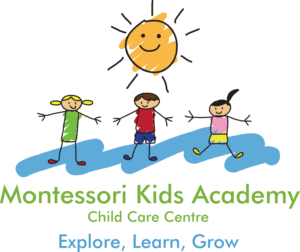Montessori History
The Montessori Method was developed by Dr. Maria Montessori, an Italian physician and educator, in the early 20th century. Dr. Montessori’s groundbreaking work began with her scientific observations of children and their learning processes, leading to the establishment of a new educational approach that has since become a global movement.
Early Beginnings:
- Maria Montessori’s Early Life: Born in 1870 in Chiaravalle, Italy, Maria Montessori was a trailblazer in many respects. She became one of the first female physicians in Italy, graduating from the University of Rome in 1896.
- Work with Children: Dr. Montessori’s interest in education grew from her work with children with special needs at the Orthophrenic School in Rome. Her success with these children led her to believe that similar methods could benefit all children.
Casa dei Bambini:
- First Montessori School: In 1907, Dr. Montessori opened her first school, Casa dei Bambini (Children’s House), in a low-income district of Rome. This school was designed to provide a stimulating and nurturing environment for young children, particularly those from disadvantaged backgrounds.
- Innovative Methods: At Casa dei Bambini, Dr. Montessori developed her educational methods based on careful observation and experimentation. She introduced specially designed materials and a prepared environment that encouraged self-directed learning and independence.
Global Expansion:
- International Recognition: The success of Casa dei Bambini attracted international attention, leading to the spread of Montessori schools across Europe and North America. Dr. Montessori began training teachers and writing extensively about her methods.
- Montessori Organizations: In 1929, Dr. Montessori and her son, Mario Montessori, founded the Association Montessori Internationale (AMI) to oversee the integrity and propagation of her educational philosophy worldwide.
Legacy and Influence:
- Enduring Popularity: Today, there are thousands of Montessori schools around the world, serving children from infancy through adolescence. The Montessori Method remains influential in early childhood education, known for its emphasis on independence, hands-on learning, and respect for the child.
- Continued Evolution: While the core principles of the Montessori Method remain unchanged, the approach has been adapted and expanded to meet the needs of modern educational environments. Research continues to validate Dr. Montessori’s insights into child development and learning.
Dr. Maria Montessori’s innovative and child-centered approach to education has left a lasting legacy, providing millions of children with a solid foundation for lifelong learning and personal growth.

